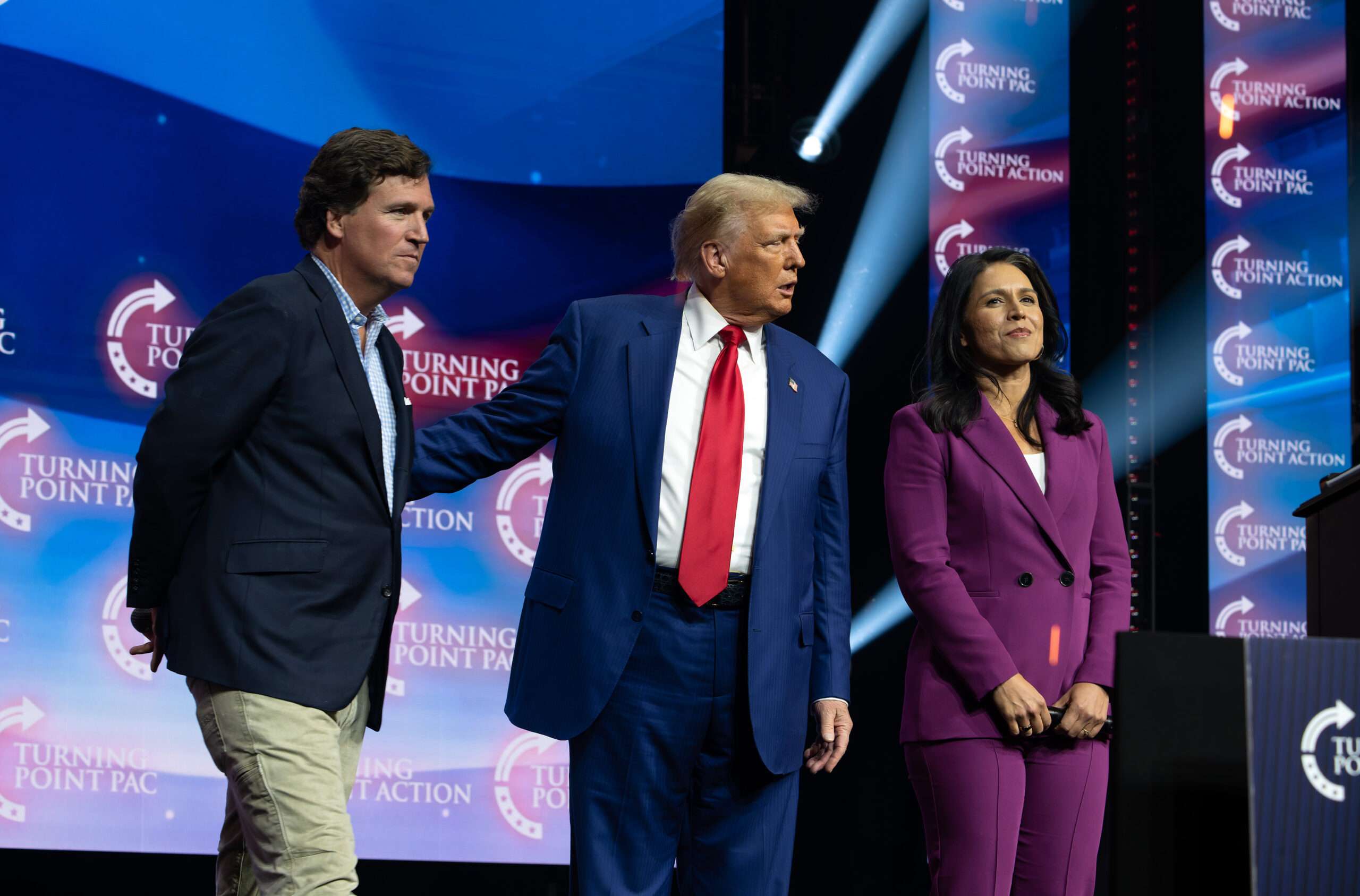Introducing Trump’s New, Highly Confusing National Security Cabinet
The incoming National Security Council under President-elect Donald Trump is expected to be a dynamic and contentious space, reflecting a wide spectrum of foreign policy perspectives. At the center of this spectrum are Michael Waltz, poised to chair the council as National Security Adviser, who advocates for a hardline stance against Syrian President Bashar Assad, and Tulsi Gabbard, designated as Director of National Intelligence, known for her position that Assad does not threaten U.S. interests. This divergence highlights the contradictions within Trump’s foreign policy team, which comprises a mix of traditional hawks and some unexpected anti-establishment figures. Trump’s approach oscillates between aggressive interventionism and calls for restraint, leading to a complex and sometimes contradictory foreign policy narrative.
The selection of prominent hawkish figures, such as Secretary of State nominee Marco Rubio, who supports regime change in Latin America, and Brian Hook, an interventionist focused on the Middle East, indicates a prevailing inclination towards military engagement. Waltz exemplifies this trend, endorsing additional military commitments abroad, including in Ukraine and Afghanistan. Conversely, the nominations of Representatives Matt Gaetz and Tulsi Gabbard signify a potential counterbalance, as both have championed limited military engagement and restraint in foreign interventions. Their presence could introduce tensions into the council, particularly as both face challenging confirmation processes in the Senate, where their views may not resonate with all members.
The appointment of Pete Hegseth as Secretary of Defense also adds to the uncertainty surrounding Trump’s foreign policy direction. Initially known as a neoconservative proponent of continued military engagement, Hegseth’s recent reflections on past conflicts suggest a possible shift in viewpoint. He now critiques decisions like the overthrow of Saddam Hussein and acknowledges the extensive costs of prolonged military engagement in regions like Iraq and Afghanistan. Nonetheless, Hegseth maintains a confrontational stance towards Iran, underscoring a persistent inclination among some advisers to advocate for military action despite a public narrative that champions a new approach to past military misadventures.
Both Gabbard and Gaetz, while often viewed as anti-war, show conflicting tendencies in their stances on specific conflicts. For instance, Gabbard has articulated support for limited military actions against terrorism and has publicly backed Israel’s military engagements in the Palestinian territories. Meanwhile, Gaetz has supported the deployment of U.S. troops in response to President Biden’s strategies, framing it as a matter of force protection. These nuances complicate the portrayal of Gabbard and Gaetz as purely anti-establishment and non-interventionist figures, suggesting their adaptability towards certain ongoing geopolitical dynamics.
An unexpected figure in Trump’s advisory circle is entrepreneur Elon Musk, who has engaged in behind-the-scenes diplomacy with Iran. His efforts echo the diplomatic openings seen during the Obama administration, which often began through informal channels. The prospect of Musk influencing U.S.-Iran relations raises questions about how Trump’s more hawkish advisers might react to such initiatives. Historical precedence suggests that internal conflicts among advisers, such as those between John Bolton and other administration officials, could stifle potential diplomatic breakthroughs in favor of military solutions.
Overall, the composition of Trump’s National Security Council reflects a mosaic of foreign policy philosophies that range from hawkish interventionism to calls for restraint. This eclectic mix, combined with the complex interpersonal dynamics among advisers, creates an uncertain landscape for future U.S. foreign policy. As these figures contend for influence, the true direction of U.S. military and diplomatic strategies will depend significantly on the willingness of Trump to navigate these competing voices and reconcile the contradictions inherent in his administration’s approach to international relations.
Share this content:












Post Comment